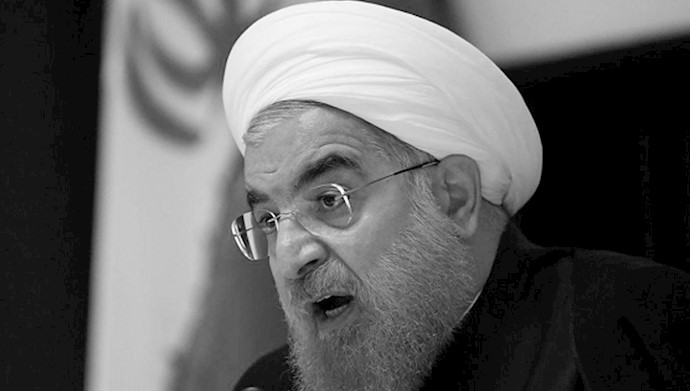Analysis by PMOI/MEK
Feb. 5, 2019 – Rouhani’s unsuccessful attempts to whitewash his failures in his speech on January 30, 2019, cost him some unprecedented confessions about the economic crisis engulfing the regime. He said the regime was “facing the toughest economic situation in 40 years” (Reuters, Jan 30, 2019)
This one sentence has says a lot about the catastrophic state of Iran’s economy, especially coming from Rouhani, who said less than three months ago: “New U.S. sanctions have no effect on Iran economy.” (Reuters, Nov 10, 2018)
What pressures have caused Rouhani’s public position to change so drastically?
A glance at Iran’s economy today
“Shattered” may be an understatement for Iran’s economy.
- Inflation is at 40% and rising.
- The country’s currency has lost two thirds of its value in the past 10 months alone.
- There is at least a 50% budget deficit.
- Oil exports have dropped from 2.5 million bpd to less than 1 million bpd.
- In addition to primary and secondary US Sanctions, now Europe is also moving the direction of more sanctions. A major step in this direction was imposing sanctions on the Security branch of the regime’s Ministry of Intelligence, and two of its staff involved in a terror plot in Denmark.
- After arresting an Iranian intelligence ministry spy, German authorities cancelled the license for Iranian “Mahan Air” flights. Mahan Air is an IRGCowned airline spreading death and destruction. German Foreign Minister Heiko Maas said that Iranian Mahan Air transports weapons and soldiers to war-torn areas in Syria.
The regime’s problems are not limited to west. Khamenei’s “look towards the East” is also failing.
- Chinese banks are not cooperating with the regime.
- China has stopped working on Arak nuclear reactor.
- China National Petroleum Corp (CNPC) has suspended investment in Iran’s South Pars natural gas project (Reuters DECEMBER 12, 2018) This was a huge $4.8 billion contract in which China was replacing the French giant “Total” which had already left the project in fear of heavy fines.
- Russian oil companies such as “Lukoil” and “Rosneft” left Iran too.
- India, Japan, South Korea, and China have reduced their oil purchases from the regime to the lowest levels in three years.
Can policy save economy?
In the absence of any promising political forecast, the countdown for the conference in Warsaw darkens the Iranian regime’s perspectives even more.
Russian deputy foreign minister Sergei Ryabkov said in an interview with CNN on January 25, 2019 (about the state of affairs in Syria) that Russia and Iran were not allies.
The French have still not sent their ambassador to Iran after seven months of delay. The French Foreign Ministry officially warned the Iranian regime that unless it revises its missile program, they are ready to implement harsh sanctions.
How About Instex?
One of the points of contention is the Instrument in Support of Trade Exchanges (Instex), a European trade vehicle that was supposed to help the Iranian regime circumvent U.S. sanctions. After months of debate and delay, Instex was finally launched last week. But there’s very little hope among both Iranian regime officials that it will live up to its promise. To save us detailed economic discussions, let us see what the regime’s own officials have to say.
Friday prayer imams, known to be representatives of the Iranian regime Supreme Leader Ali Khamenei, expressed their hopelessness and disappointment in regards to the newly announced European initiative dubbed Instex. They used phrases such as “nothing special will happen” and “We should not be deceived as we were in regards to the 2015 nuclear deal”.
Within the regime’s circles, they say Instex is very similar to “Oil-for-Food Program” with one major difference. Here, the program is conditioned to acceptance of FATF (internationally accepted anti-money laundering and anti-terrorism funding rules), abandoning the missile program and non-interference in other counties affairs in the region, each of which is a strategic blow to the regime.
This all blends into the precarious situation that the Iranian regime is facing at home, where protests are erupting in every town and city and Iranian Resistance units are challenging and undermining the tyrannical rule of the regime in unprecedented way. Under such conditions, Rouhani, who has a track record of deceit and hypocrisy, has no other choice than to confess to the truth of his collapsing regime.





